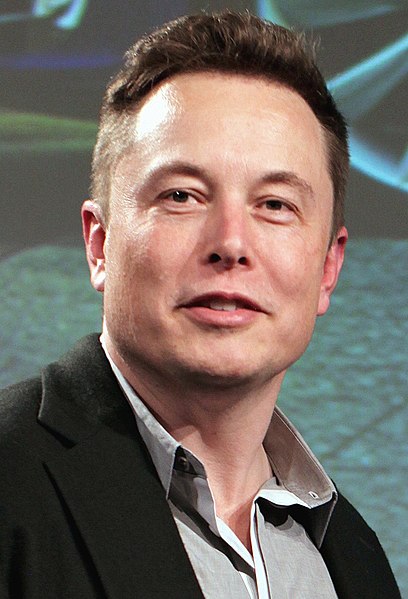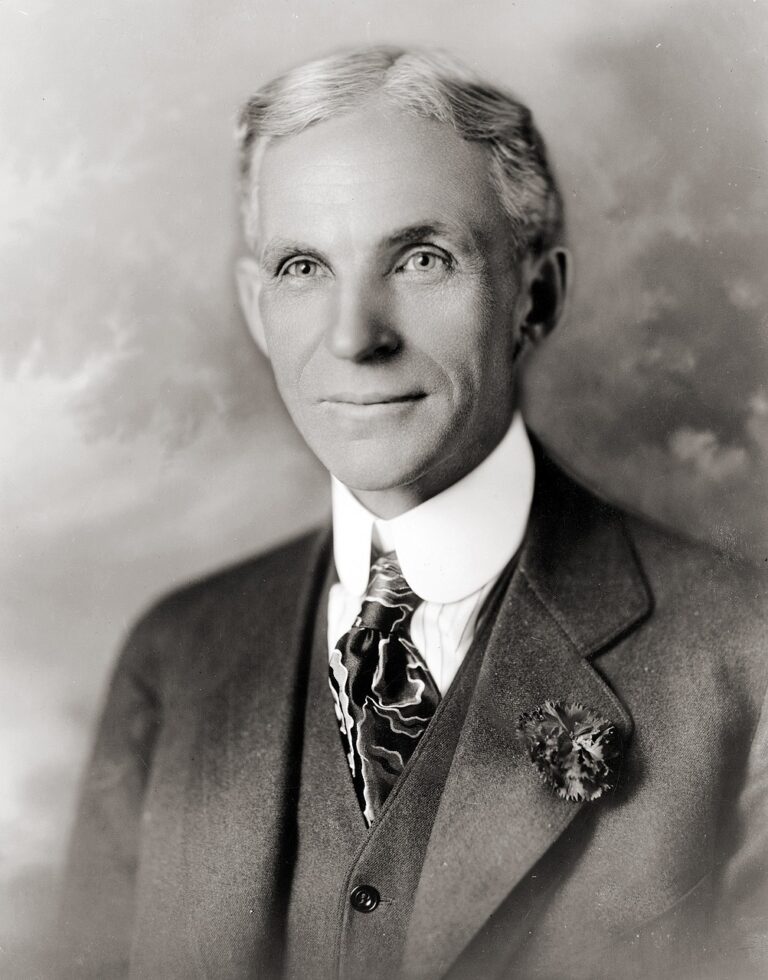Musk’s Masterclass: Unraveling the Leadership Secrets of a Modern Visionary

Embarking on Musk’s Leadership Odyssey
Elon Musk, the enigmatic entrepreneur and innovator, has transformed several industries with his groundbreaking ideas and relentless drive for excellence. He has been a trailblazer in the realms of space exploration, electric vehicles, renewable energy, and advanced technology, leaving an indelible mark on the world. From SpaceX to Tesla, SolarCity, and Neuralink, Musk’s ventures have not only pushed the boundaries of what is possible but have also inspired countless others to dream big and persevere in the face of adversity. In this article, we delve into the leadership lessons and stories of Elon Musk, examining the principles and qualities that have contributed to his extraordinary success.
The purpose of this article is to analyze and learn from Elon Musk’s leadership journey by exploring the pivotal moments and decisions that have shaped his career. Through a comprehensive examination of his life and accomplishments, we aim to identify the key leadership lessons that can be drawn from his experiences and provide valuable insights for individuals seeking to develop their own leadership skills. By doing so, we hope to contribute to a greater understanding of the qualities and strategies that make for effective, transformative leadership.
To truly appreciate the magnitude of Musk’s achievements, it is essential to recognize the diverse range of industries he has impacted. With SpaceX, Musk has revolutionized space exploration, making it more accessible and cost-effective through reusable rocket technology. At Tesla, he has spearheaded the mass adoption of electric vehicles, contributing significantly to the reduction of carbon emissions and championing sustainable transportation. SolarCity, another of his ventures, has played a crucial role in promoting clean energy by making solar power more affordable and accessible to homeowners. Neuralink, his ambitious foray into brain-computer interfaces, aims to augment human capabilities and address neurological disorders. Lastly, OpenAI, the organization he co-founded, is dedicated to advancing artificial intelligence safely and responsibly, for the betterment of humanity.
Each of these ventures has its unique set of challenges and opportunities, but at the core of them all lies Musk’s unyielding determination and unwavering vision. His ability to identify problems, envision solutions, and rally the resources necessary to bring his ideas to life has consistently been a driving force behind his success. Throughout this article, we will closely examine the stories and lessons from his life, shedding light on the principles that have guided his leadership, and offering valuable insights that can be applied to our own lives and careers.
Early Life and Entrepreneurial Spirit
Before we can fully appreciate Elon Musk’s leadership lessons, it is essential to understand the foundations that have shaped his unique perspective on life and business. Born on June 28, 1971, in Pretoria, South Africa, Elon Reeve Musk displayed an affinity for technology and entrepreneurship from a young age. Growing up in a family of ambitious individuals, with an electromechanical engineer father and a model and dietitian mother, Musk was exposed to a diverse range of influences that would later contribute to his innovative mindset.
Overview of Musk’s upbringing and education
Musk’s curiosity and love for learning became evident early on. As a self-taught programmer, he developed and sold his first video game, Blastar, at the age of 12. This early accomplishment hinted at the remarkable potential he possessed. His thirst for knowledge and passion for technology only grew stronger, leading him to pursue higher education in the United States. He attended Queen’s University in Ontario, Canada, before transferring to the University of Pennsylvania, where he earned degrees in physics and economics.
Despite facing several personal challenges during his formative years, including a tumultuous relationship with his father and instances of bullying at school, Musk remained focused on his ambitions. His determination to forge his own path eventually led him to drop out of a Ph.D. program at Stanford University after just two days to pursue entrepreneurial opportunities in the burgeoning field of the internet.
Founding Zip2 and the beginning of his entrepreneurial journey
In 1995, Musk co-founded Zip2, a company that provided online business directories and maps for newspapers. He poured his energy into developing the company, even at times sleeping in the office and using the local YMCA for showers. Zip2’s success attracted the attention of Compaq, which acquired the company for nearly $300 million in 1999. This exit provided Musk with the capital to fund his future ventures and set the stage for his meteoric rise in the world of entrepreneurship.
The experience of building Zip2 provided Musk with invaluable leadership lessons. He learned the importance of resilience and adaptability, as he navigated the challenges of growing a start-up in the competitive landscape of the late 1990s. Musk’s ability to overcome obstacles, refine his ideas, and stay true to his vision, even in the face of adversity, laid the groundwork for his leadership style.
Takeaway: The importance of resilience and adaptability in leadership
Elon Musk’s early life and experiences have shaped the resilient and adaptable leader that he is today. His journey demonstrates that success is not necessarily defined by a linear path or the absence of challenges, but rather by the ability to adapt to change and persevere through difficult circumstances. The story of Zip2’s founding and eventual sale highlights the critical role of resilience and adaptability in effective leadership. These qualities enable leaders to navigate uncertainty, learn from setbacks, and seize opportunities that arise from an ever-evolving landscape.
In the following sections, we will explore Elon Musk’s leadership lessons and stories in greater depth, as we examine his ventures in various industries and the transformative impact he has had on the world. By doing so, we will uncover the unique qualities and principles that have guided his leadership and made him a trailblazer in multiple fields.
Co-founding PayPal and Lessons Learned
Following the sale of Zip2, Elon Musk embarked on his next entrepreneurial adventure, one that would forever change the landscape of online payments and finance. The venture that ultimately became PayPal not only showcased Musk’s visionary thinking but also provided him with vital leadership lessons that would prove invaluable in his future endeavors.
The inception of X.com and its evolution into PayPal
In 1999, Musk founded X.com, an online financial services and email payment platform. The company aimed to revolutionize the way people conducted financial transactions on the internet, providing a secure and convenient method for transferring funds. X.com quickly attracted attention and investment, growing rapidly in its early years.
In 2000, X.com acquired Confinity, a company that had developed a digital wallet called PayPal. The combined entity initially faced internal struggles and competition, but under Musk’s leadership, they made the pivotal decision to focus solely on the PayPal service. This strategic move streamlined the company’s operations and allowed them to concentrate on refining and expanding their core product.
In 2001, X.com officially changed its name to PayPal, reflecting the company’s commitment to its now-flagship product. With Musk at the helm, PayPal continued to innovate and grow, ultimately going public in 2002 and later being acquired by eBay for $1.5 billion.
Key leadership decisions and strategies that contributed to PayPal’s success
Musk’s leadership played a crucial role in PayPal’s success. One of the most significant decisions he made was to pivot the company’s focus towards the PayPal platform, a move that allowed the team to capitalize on an untapped market and establish itself as a leader in online payments.
Another key aspect of Musk’s leadership was his ability to foster a culture of innovation within the company. He encouraged his team to think creatively and take calculated risks, which led to the development of cutting-edge technology and features that set PayPal apart from its competitors.
Additionally, Musk demonstrated exceptional foresight by identifying the value of network effects in the digital payments industry. By strategically leveraging these effects, PayPal rapidly expanded its user base, fueling the company’s growth and solidifying its position as a market leader.
Takeaway: The power of embracing change and fostering a culture of innovation
The story of PayPal’s inception and evolution offers valuable insights into the leadership qualities that have contributed to Elon Musk’s success. One of the most important lessons to be drawn from this chapter of his career is the power of embracing change and fostering a culture of innovation.
As a leader, Musk was willing to pivot and adapt the company’s focus when it became clear that the PayPal service offered the greatest potential for growth and success. This ability to recognize and seize opportunities is a critical aspect of effective leadership, especially in rapidly changing industries.
Moreover, Musk’s commitment to fostering a culture of innovation within PayPal allowed the company to stay ahead of the competition and continuously improve its product. By encouraging creativity and risk-taking, leaders can inspire their teams to develop novel solutions and challenge the status quo, ultimately driving success and growth.
As we continue to explore Elon Musk’s leadership journey, we will see how these qualities of embracing change and fostering innovation remain central to his approach and play a pivotal role in his ventures across various industries.
The Birth of SpaceX and the Pursuit of the Impossible
In the wake of PayPal’s success, Elon Musk set his sights on an even more ambitious and groundbreaking venture: space exploration. Inspired by his long-held fascination with space and the potential for humans to become a multiplanetary species, Musk founded SpaceX in 2002. His leadership and vision would not only revolutionize the aerospace industry but also teach valuable lessons on setting ambitious goals and inspiring others to achieve them.
Musk’s vision for space exploration and the founding of SpaceX
Space Exploration Technologies Corp., or SpaceX, was founded with the audacious goal of reducing the cost of space travel and making it more accessible. Musk envisioned a future where humanity could explore and inhabit other planets, beginning with Mars. To achieve this vision, he sought to develop reusable rocket technology that would dramatically lower the cost of launching payloads and humans into space.
Many in the aerospace industry were skeptical of Musk’s ambitions, considering them unrealistic or even impossible. Undeterred, he invested a significant portion of his personal fortune into SpaceX and assembled a team of engineers and experts to pursue his vision.
Overcoming obstacles and near-failure through determination and resourcefulness
SpaceX faced numerous obstacles and setbacks in its early years. The company’s first three attempts to launch the Falcon 1 rocket ended in failure, and with financial resources dwindling, the future of SpaceX hung in the balance. However, Musk’s unwavering determination and belief in his vision inspired his team to push forward.
In 2008, on their fourth and potentially final attempt, SpaceX successfully launched the Falcon 1 into orbit, becoming the first privately-funded company to do so. This historic achievement validated Musk’s vision and marked the beginning of a series of groundbreaking accomplishments, including the development of the Falcon 9 and Falcon Heavy rockets, the Dragon spacecraft, and the Starship launch system.
Takeaway: The value of setting ambitious goals and inspiring others to achieve them
The story of SpaceX’s founding and its subsequent success offers invaluable lessons in leadership, particularly the importance of setting ambitious goals and inspiring others to achieve them. Musk’s unwavering commitment to his vision and his refusal to give up in the face of adversity galvanized his team to overcome immense challenges and achieve what many considered impossible.
Musk’s leadership in the face of adversity demonstrates the power of conviction and determination. By setting lofty goals and maintaining a relentless focus on achieving them, leaders can inspire their teams to push the boundaries of what is possible and realize extraordinary outcomes.
Moreover, Musk’s ability to communicate his vision and instill a sense of purpose in his team has been a crucial factor in SpaceX’s success. By articulating the company’s mission in a compelling and inspiring manner, he has fostered a culture of innovation, passion, and dedication that has propelled SpaceX to the forefront of the aerospace industry.
In the following sections, we will continue to explore Elon Musk’s leadership lessons and stories, examining how his unwavering vision and commitment to innovation have driven success in diverse industries, from electric vehicles to renewable energy and advanced technology.
Revolutionizing the Automotive Industry with Tesla
Armed with the experience and lessons learned from his previous ventures, Elon Musk embarked on a mission to transform the automotive industry by promoting sustainable transportation and advancing electric vehicle technology. With Tesla, Musk not only challenged the traditional auto industry but also demonstrated the power of leading with vision and commitment to a cause.
Tesla’s mission and the uphill battle for electric vehicles
Founded in 2003 by Martin Eberhard and Marc Tarpenning, Tesla aimed to prove that electric vehicles could be both desirable and environmentally friendly. Musk joined the company in 2004 as an investor and chairman, and later became its CEO. He played a pivotal role in shaping the company’s mission and product roadmap, with a strong focus on driving the mass adoption of electric vehicles.
The automotive industry had long been dominated by internal combustion engines, and electric vehicles faced considerable skepticism and resistance. Tesla, under Musk’s leadership, set out to challenge this status quo and create a paradigm shift in the way people thought about and consumed transportation.
The development of Tesla’s innovative products and the strategic master plan
Musk’s vision for Tesla was not just about creating a single electric vehicle but transforming the entire automotive industry. In 2006, he unveiled Tesla’s “Master Plan,” a strategic roadmap that outlined the company’s ambitious goals for the coming years. The plan involved starting with a high-end, low-volume electric sports car (the Tesla Roadster), then leveraging the revenue to develop more affordable and higher-volume vehicles (the Model S and Model X), and ultimately, bringing electric vehicles to the mass market (the Model 3 and Model Y).
Under Musk’s leadership, Tesla has not only achieved these milestones but also introduced innovations such as Autopilot, over-the-air software updates, and the Supercharger network. Furthermore, Tesla’s Gigafactories have revolutionized battery production and supply chain management, ensuring the necessary infrastructure to support the company’s growth.
Takeaway: Leading with vision and commitment to a cause
Tesla’s success in revolutionizing the automotive industry can be largely attributed to Elon Musk’s visionary leadership and unwavering commitment to the company’s mission. Through his leadership, Musk has demonstrated the power of setting ambitious goals, fostering a culture of innovation, and staying true to a cause that transcends the organization’s immediate objectives.
The story of Tesla showcases the importance of leading with purpose and aligning an organization’s actions with its mission. By articulating a compelling vision and rallying the team around a shared goal, leaders can inspire their employees to overcome challenges, drive innovation, and make a lasting impact.
As we delve deeper into Elon Musk’s leadership journey, we will continue to uncover the principles and lessons that have contributed to his success across diverse industries. In the following sections, we will explore how Musk’s leadership qualities have shaped his ventures in renewable energy, advanced technology, and beyond.
Pioneering the Future of Clean Energy with SolarCity
Elon Musk’s pursuit of a sustainable future did not stop at electric vehicles. Recognizing the immense potential of renewable energy, Musk co-founded SolarCity in 2006 with his cousins, Lyndon and Peter Rive. The company aimed to provide affordable solar energy solutions for homes and businesses, further solidifying Musk’s commitment to a cleaner, more sustainable world. His leadership at SolarCity offers valuable lessons on collaboration, strategic thinking, and holistic problem-solving.
SolarCity’s mission and the vision for a sustainable energy ecosystem
SolarCity was founded with the mission to accelerate the world’s transition to sustainable energy by making solar power more accessible and affordable for homeowners and businesses. By offering innovative financing options, such as solar leases and power purchase agreements, the company helped remove the significant upfront cost barrier associated with solar installations.
Musk’s vision for SolarCity was not limited to solar panel installations; he saw the potential for a fully integrated sustainable energy ecosystem. This included energy generation through solar panels, energy storage using Tesla’s Powerwall and Powerpack products, and electric vehicle charging through Tesla’s vehicles and Supercharger network. This holistic approach to addressing the world’s energy challenges demonstrated Musk’s ability to think strategically and devise comprehensive solutions.
SolarCity’s growth, challenges, and eventual acquisition by Tesla
Under Musk’s leadership, SolarCity rapidly grew to become one of the largest solar energy providers in the United States. However, the company faced numerous challenges, including increased competition, regulatory changes, and financial pressures.
In 2016, Tesla acquired SolarCity in a $2.6 billion deal, which was initially met with skepticism by investors and industry observers. Musk defended the acquisition, arguing that it was a crucial step towards realizing his vision of a sustainable energy ecosystem. The integration of SolarCity into Tesla’s operations allowed for greater collaboration, resource sharing, and the development of innovative products, such as the Solar Roof.
Takeaway: The importance of collaboration, strategic thinking, and holistic problem-solving
Elon Musk’s leadership at SolarCity offers valuable insights into the power of collaboration, strategic thinking, and holistic problem-solving. By fostering strong collaboration between SolarCity and Tesla, Musk was able to create synergies that accelerated the development of innovative products and solutions, positioning both companies at the forefront of their respective industries.
His strategic thinking enabled him to recognize the value of integrating solar energy generation, storage, and electric vehicle charging into a unified sustainable energy ecosystem. This holistic approach to problem-solving demonstrates the importance of looking beyond immediate challenges to envision comprehensive solutions that address the underlying issues at hand.
The story of SolarCity adds yet another dimension to Elon Musk’s leadership journey, showcasing his unwavering commitment to a sustainable future and his ability to innovate across diverse industries. In the next sections, we will continue to explore Musk’s leadership lessons and stories, examining his ventures in advanced technology and artificial intelligence.
The Boring Company: Conquering Transportation Challenges
Elon Musk’s innovative spirit and visionary leadership extend to yet another realm: tackling urban transportation challenges. With The Boring Company, Musk sought to alleviate traffic congestion and revolutionize the way people travel within cities. His leadership in this venture demonstrates the importance of challenging the status quo and embracing unconventional solutions.
The inspiration behind The Boring Company and its objectives
Frustrated by the traffic congestion in Los Angeles, Musk envisioned a solution that would involve digging tunnels beneath the city to create an efficient, high-speed transportation network. Thus, The Boring Company was born in 2016. The company’s objectives include drastically reducing the cost and time associated with tunnel construction, creating a network of underground transportation tunnels, and eventually integrating these tunnels with Musk’s other ventures, such as Tesla and the Hyperloop system.
Unique leadership decisions and strategies that enabled rapid progress
Musk’s leadership at The Boring Company has been characterized by unconventional thinking and a relentless drive to innovate. He recognized that traditional tunneling methods were slow and expensive, and he sought to develop new technologies and approaches that would make tunnel construction faster and more cost-effective.
One key decision Musk made was to prioritize research and development, leading to innovations such as the Tunnel Boring Machine (TBM). The company’s TBM is designed to continuously excavate and reinforce tunnels, significantly reducing construction time and costs.
Additionally, Musk promoted the idea of repurposing the excavated dirt from tunnel construction to create bricks for affordable housing projects, demonstrating his ability to identify unique solutions that not only address the immediate problem but also have broader societal benefits.
Takeaway: The importance of challenging the status quo and embracing unconventional solutions
Elon Musk’s leadership at The Boring Company highlights the importance of challenging the status quo and embracing unconventional solutions. Rather than accepting the limitations of traditional tunneling methods, Musk pushed the boundaries of what was possible, driving innovation and fostering a culture of creative problem-solving within the company.
This approach to leadership underscores the value of questioning established norms and seeking novel solutions to complex problems. By cultivating an environment where employees are encouraged to think differently and challenge conventional wisdom, leaders can inspire their teams to develop groundbreaking ideas and technologies that have the potential to transform industries.
The story of The Boring Company adds yet another dimension to Musk’s leadership journey, showcasing his ability to identify and tackle seemingly intractable problems with innovative thinking and relentless determination. As we continue to explore Elon Musk’s leadership lessons and stories, we will examine how his ventures in artificial intelligence and other advanced technologies further demonstrate his unique leadership qualities and visionary thinking.
Neuralink: Bridging the Gap between Humans and Technology
Elon Musk’s leadership journey extends into the realm of artificial intelligence and brain-computer interfaces with Neuralink, a venture that aims to revolutionize human interaction with technology. His leadership in this endeavor highlights the importance of nurturing a learning mindset and fostering intellectual curiosity in the pursuit of groundbreaking innovations.
The inception of Neuralink and its ambitious goals
Founded in 2016, Neuralink’s ambitious goal is to develop advanced brain-computer interfaces (BCIs) that enable seamless communication between the human brain and machines. Musk believes that BCIs will not only have the potential to address neurological disorders and injuries but also help humanity keep pace with the rapid advancements in artificial intelligence, ensuring a symbiotic relationship between humans and machines.
To achieve these goals, Neuralink is working on creating a high-bandwidth BCI that can safely and effectively transmit information between the brain and external devices, ultimately aiming to develop a wireless, implantable device that can be widely adopted.
Musk’s leadership in fostering a culture of curiosity and exploration
Musk’s leadership at Neuralink has been instrumental in cultivating an environment that encourages curiosity, exploration, and a relentless pursuit of knowledge. Recognizing the immense scientific and technological challenges associated with developing advanced BCIs, Musk has assembled a team of experts across various disciplines, including neuroscience, robotics, and materials science.
He encourages open communication and collaboration among team members, fostering a culture that values questioning assumptions, exploring new ideas, and learning from failure. This approach enables the company to push the boundaries of current knowledge, driving innovation and progress in a rapidly evolving field.
Takeaway: The power of nurturing a learning mindset and fostering intellectual curiosity
Elon Musk’s leadership at Neuralink demonstrates the power of nurturing a learning mindset and fostering intellectual curiosity. By creating an environment that encourages exploration, questioning, and collaboration, Musk has been able to inspire his team to tackle complex scientific and technological challenges and pursue groundbreaking innovations.
This approach to leadership highlights the importance of cultivating a culture that values learning and intellectual curiosity. By fostering such a culture, leaders can empower their teams to think creatively, develop novel solutions, and drive innovation across a wide range of industries and disciplines.
Neuralink serves as yet another example of Musk’s visionary thinking and his ability to lead teams in the pursuit of ambitious, transformative goals. As we continue to explore Elon Musk’s leadership lessons and stories, we gain a deeper understanding of the qualities and principles that have driven his success and shaped his impact on the world.
OpenAI: Safeguarding Humanity’s Best Interests
Elon Musk’s leadership extends to the world of artificial intelligence (AI) through OpenAI, an organization committed to ensuring that AI development is safe, ethical, and ultimately benefits all of humanity. His leadership in this venture underscores the importance of ethical considerations and long-term thinking in guiding the development and application of advanced technologies.
The founding of OpenAI and its commitment to ensuring safe AI development
Founded in 2015 by Elon Musk, Sam Altman, and several other prominent tech leaders, OpenAI’s mission is to ensure that artificial general intelligence (AGI) benefits all of humanity. Recognizing the potential of AI to transform society and bring about significant benefits, as well as the risks associated with its unchecked development, the organization is dedicated to conducting research that prioritizes safety, ethics, and the long-term interests of humanity.
OpenAI’s Charter outlines the principles that guide its research and activities, including a strong emphasis on long-term safety, technical leadership, and cooperative orientation. The organization actively collaborates with other research institutions and policy groups to create a global community that addresses AI’s global challenges together.
Musk’s leadership in promoting collaboration and responsible AI research
Elon Musk’s leadership has been instrumental in shaping OpenAI’s mission, values, and approach to AI research. He has been a vocal advocate for the responsible development of AI, emphasizing the need for collaboration, transparency, and a focus on safety to ensure that AI serves humanity’s best interests.
Musk’s leadership at OpenAI fosters a culture of cooperation, both within the organization and with external partners. By promoting collaboration and the sharing of knowledge, he aims to create a united front to address the complex challenges associated with AI and AGI development. This approach encourages researchers to work together in the pursuit of common goals, rather than engaging in potentially harmful competitive races without proper safety precautions.
Takeaway: The importance of ethical considerations and long-term thinking in leadership
Elon Musk’s leadership at OpenAI highlights the importance of ethical considerations and long-term thinking in guiding the development and application of advanced technologies. By placing a strong emphasis on safety, ethics, and the well-being of humanity, Musk demonstrates the value of adopting a responsible and forward-looking approach to leadership.
This approach to leadership underscores the need for leaders to think beyond immediate goals and consider the broader implications of their decisions, particularly when it comes to the development and deployment of transformative technologies. By prioritizing ethical considerations and long-term outcomes, leaders can ensure that their actions benefit society and contribute to a better future for all.
OpenAI serves as another testament to Musk’s visionary leadership and his commitment to tackling the complex challenges that shape our world. As we explore his leadership lessons and stories, we gain a deeper understanding of the qualities and principles that have driven his success across various industries and made a lasting impact on the world.
Key Leadership Principles and Traits
Elon Musk’s leadership journey offers a wealth of insights and lessons that can be applied to our own personal and professional lives. By examining his various ventures and the principles that have guided his decision-making, we can glean valuable wisdom on effective leadership and the qualities that define successful leaders.
Summary of leadership lessons learned from Musk’s journey
Musk’s leadership journey has been characterized by several key principles and lessons, including:
-
Visionary thinking: Embracing bold, ambitious goals and using them to inspire and drive innovation.
-
Perseverance and resilience: Overcoming setbacks, failures, and adversity to achieve long-term success.
-
Embracing risk: Willingness to take calculated risks and pursue unconventional ideas in the face of uncertainty.
-
Collaboration and teamwork: Building strong, diverse teams and fostering an environment of open communication and collaboration.
-
Strategic thinking and holistic problem-solving: Addressing complex challenges with comprehensive solutions that consider multiple factors and long-term implications.
-
Challenging the status quo: Questioning established norms and seeking innovative solutions to seemingly intractable problems.
-
Ethical considerations and long-term thinking: Prioritizing the well-being of humanity and the planet in decision-making and embracing responsible, forward-looking leadership.
Analysis of Musk’s unique leadership style and traits
Elon Musk’s leadership style is characterized by a combination of unique traits and qualities, which have enabled him to achieve remarkable success across a range of industries. Some of these defining traits include:
-
Visionary thinking: Musk’s ability to envision a better future and articulate a clear, inspiring vision has been a driving force behind his success.
-
Intellectual curiosity: Musk is known for his insatiable thirst for knowledge and his ability to rapidly assimilate new information across various domains.
-
Relentless drive: Musk possesses an unwavering determination to see his ideas through to fruition, often working tirelessly to overcome obstacles and achieve his goals.
-
Adaptability: Musk has demonstrated the ability to adapt to changing circumstances and learn from failure, using setbacks as opportunities for growth and improvement.
-
Empowerment: Musk empowers his teams to take ownership of their work and make decisions that align with the company’s mission and goals.
How to apply these lessons in our own leadership journey
By incorporating the leadership principles and traits exemplified by Elon Musk, we can enhance our own leadership journey and make a meaningful impact in our personal and professional lives. Here are some ways to apply these lessons:
-
Develop a clear, inspiring vision: Define your long-term goals and articulate a compelling vision that motivates and inspires both yourself and those around you.
-
Embrace resilience and perseverance: Cultivate a growth mindset and learn to view setbacks and failures as opportunities for growth and improvement.
-
Take calculated risks: Be willing to pursue unconventional ideas and take risks when necessary, but always balance risk-taking with careful planning and analysis.
-
Foster collaboration and teamwork: Build strong, diverse teams and create an environment that encourages open communication, collaboration, and mutual support.
-
Think strategically and holistically: Approach complex challenges with comprehensive solutions, considering multiple factors and long-term implications.
-
Challenge the status quo: Encourage innovation and creative problem-solving by questioning established norms and seeking novel solutions to pressing problems.
-
Prioritize ethical considerations and long-term thinking: Make decisions that prioritize the well-being of humanity and the planet, and embrace responsible, forward-looking leadership.
By applying these lessons from Elon Musk’s leadership journey, we can grow as leaders, inspire those around us, and make a lasting impact on the world.
Embracing the Leadership Lessons of Elon Musk
Throughout this exploration of Elon Musk’s leadership journey, we have uncovered a wealth of insights and lessons that can inform and inspire our own personal and professional growth. From visionary thinking to resilience and perseverance, Musk’s unique leadership style has driven his success across multiple industries and left an indelible impact on the world.
As we reflect on the stories and principles that define Musk’s leadership, it is essential to recognize that these lessons are not exclusive to him. Each of us can embrace and apply these principles to our own leadership journey, whether we are leading a team, a company, or simply striving to make a positive impact in our own lives and communities.
By cultivating a clear, inspiring vision, embracing risk and resilience, fostering collaboration and teamwork, thinking strategically and holistically, challenging the status quo, and prioritizing ethical considerations and long-term thinking, we can unlock our own leadership potential and inspire those around us to reach new heights of success and innovation.
In an ever-changing world, faced with complex challenges and immense opportunities, the leadership lessons of Elon Musk serve as a powerful reminder of what can be achieved when we dare to dream big, persevere in the face of adversity, and commit ourselves to making a lasting, positive impact on the world.
As we continue our own leadership journey, let us draw upon the wisdom and inspiration found in Musk’s story, and strive to become the visionary, resilient, and compassionate leaders that our world so desperately needs.





